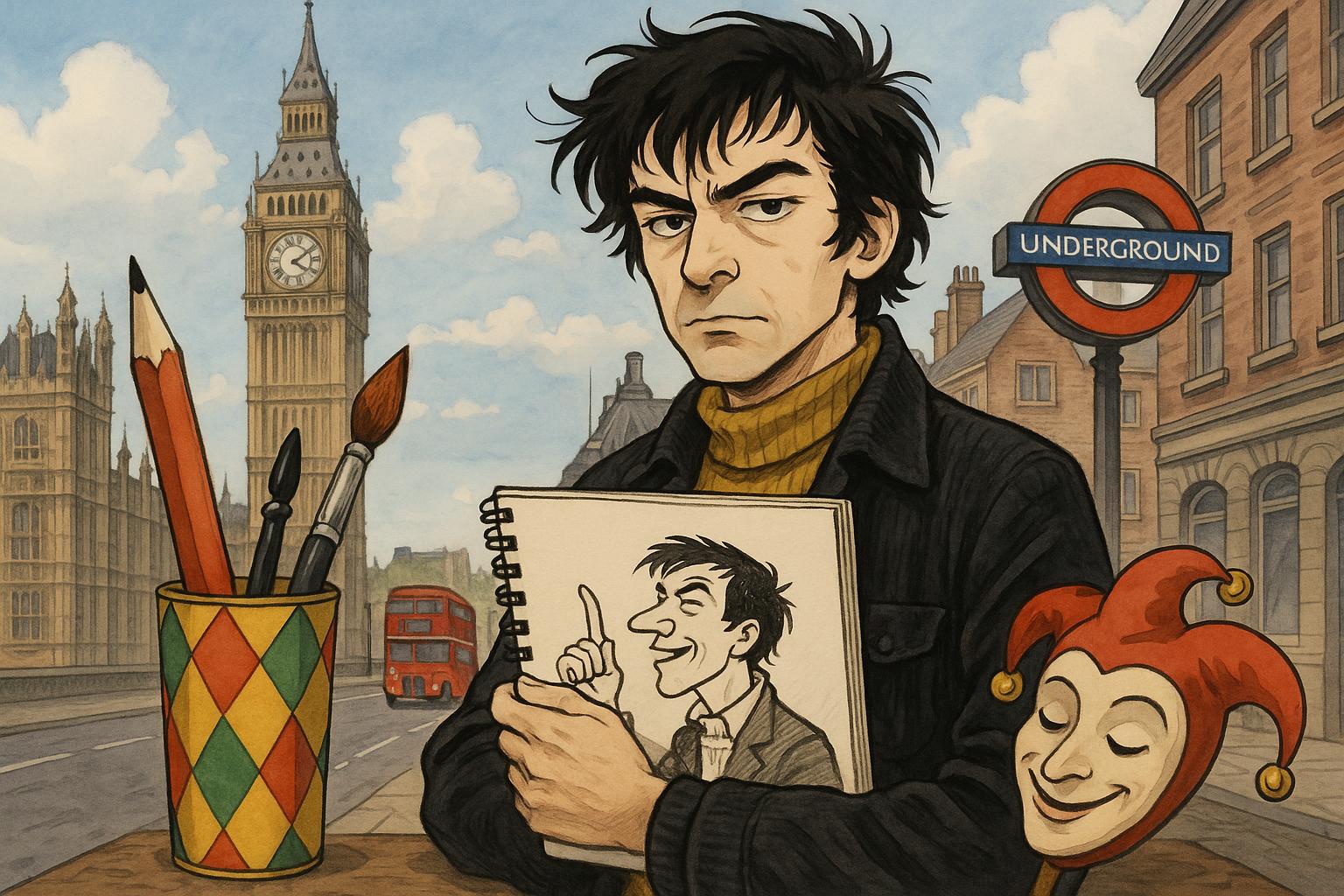It was the bitter winter of 1963, with heavy snow blanketing London, when Barry Fantoni first burst onto the art scene. The unveiling of a controversial near-lifesize portrait of the Duke of Edinburgh, depicted in his underpants and surrounded by whimsical props such as a kilt and a polo stick, caused an uproar. This striking image, reminiscent of a child's cut-out doll, captivated public attention, ultimately leading to the swift sale of his entire first solo exhibition to an American art dealer. Richard Ingrams, co-founder of the satirical magazine Private Eye, took notice, paving the way for Fantoni’s impressive 47-year tenure at the publication, where he contributed to numerous issues, donned various creative hats, and co-created the beloved character EJ Thribb.
During the vibrant 1960s, Fantoni became emblematic of the swinging London era. He mingled with notable stars such as Paul McCartney and Ray Davies, and became a notable figure on television, hosting the BBC’s A Whole Scene Going. His work resonated deeply within the zeitgeist, as he brought a working-class sensibility to a publication often dominated by elites. However, he did not shy away from critiquing those in power; he aimed to “wound or mock” the corrupt establishment through his satirical cartoons. In a reflective moment during a 2009 interview, he expressed his conflicted feelings about his cartooning legacy, saying, “If I could be honest I would put it at the bottom of the list,” highlighting his desire to be remembered for more than just his visual art.
Besides his acclaimed work as a cartoonist, Fantoni was a man of many talents—he was a poet, a jazz musician, a playwright, and even dabbled in detective novels. Poetry held a special place in his heart, which he described as the "bedrock of my life," far surpassing his other artistic endeavors. His distinctive alter ego, EJ Thribb, was a vehicle for his poetry readings, embracing both humour and a sense of poignancy. Thribb's obituary poems often served to critique society, encapsulated by his memorable catchphrase, “So farewell then,” which he opened with, seamlessly blending wit and reflection.
Fantoni's background was rich and multifaceted. He was born in Epping, Essex, to a Jewish mother and an Italian father, both of whom instilled a love for art and culture in him from a young age. After facing expulsion from Camberwell School of Art for his rebellious antics, including drawing the staff in compromising positions, he persevered through a battle with tuberculosis, an experience that shaped his work ethic and perspective on life. This drive led him to the Slade School of Fine Art and relevance on a broader cultural canvas.
The publication rhythm of Private Eye allowed Fantoni to explore various creative outlets. He was a regular contributor to The Times as a diary cartoonist and art critic, while also showcasing his caricatures in The Listener for nearly two decades. His proclivity for innovation did not wane; he went on to establish the Depechism movement in 2012 after relocating to Calais, where he aimed to produce art swiftly to counter the perceived emptiness of the contemporary art scene.
In his later years, following significant health challenges, Fantoni continued to create, moving to Turin with his partner, Katie Dominy. He produced a number of memoirs and poetry collections, retaining his sharp wit until the end. In an email shortly before his passing, he expressed a sense of urgency with regard to his creative projects, stating, “I have a huge pile of work ahead.” However, like the inimitable spirit he embodied, his final admonition echoed in the familiar tones of Private Eye editors: “That’s enough Barry – Ed.”
Barry Fantoni's life and work were marked by a zest for creativity, an enduring critical eye, and an ability to find humour in the mundane—qualities that ensured his position as a beloved figure within British culture, continually influencing new generations of artists and cartoonists alike.
Reference Map:
- Paragraph 1 – [1], [2]
- Paragraph 2 – [2], [4], [6]
- Paragraph 3 – [1], [3], [5]
- Paragraph 4 – [6], [7]
- Paragraph 5 – [1], [2], [4]
- Paragraph 6 – [6], [5], [3]
- Paragraph 7 – [1], [2], [6]
Source: Noah Wire Services
